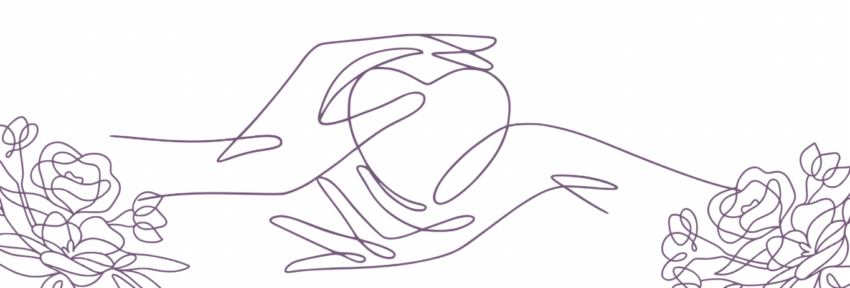The other weekend, a drizzly Sunday afternoon in fact, I was holding dear Kevin, a beloved pet chicken who had met his untimely end courtesy of a rogue spaniel in our garden. Standing under a few sparse trees, the weather progressively frizzed up my hair and tickled my nose, and an itch I couldn’t scratch formed due to this little wrapped up bundle in my arms. I held my feathery friend part way over his final resting place in the garden, thinking of some peaceful words to cement his brief time on earth. Then, I was caught off guard. In the most unexpected, thought-provoking way ever. I’m talking an existential crisis that needed resolving in the blink of an eye.
My youngest shouted out in protest, ‘What are you doing, mum?’ as I was lowering him into his earthy grave. Naturally, I stopped. He continued, ‘why are you burying him? He’s asleep.’
And there it was. The age of innocence, like chiming bells, barged through the nonsense of words. Was Kevin dead or asleep? I’d somehow tricked my youngest into thinking that Kevin’s injuries were simply something he was sleeping off, and that I was about to bury him two feet under – alive. That’s a difficult one to process.
In my over protective mothering mode, I’d shied away from the language of death, in favour of the euphemistic ‘Kevin has gone to sleep.’ It was his first experience of bereavement, and it hurt me deeply to think he would feel grief. I didn’t want my little boy to think about death, or be hurt, upset or confused. I wanted to absorb all those things up for him instead. In hindsight, after the incident, and reading up on how to talk to children about the loss of a pet, using simple, honest language should have been my go-to.
According to the brilliant information on cbeebies, ‘Children need a clear explanation to help them make sense of what’s happened. Keep the information simple and truthful, and use words they can understand.’
Kids are bright, clever, resilient creatures filled with questions and emotions. They also take things literally – I should have known.
I needn’t have worried. Before I had the opportunity to choose my words, my equally hurt and angry eldest blurted out, ‘He’s not asleep. The vet killed him.’ So that opened up another avenue of things to discuss later when it came to word choices and diplomacy.
I bravely explained that Kevin’s injuries meant he could no longer look after himself, and that his brain was too hurt from being shook. After a good look over, the vet declared it wasn’t fair for poor Kevin to continue, and we wouldn’t want him to suffer. Kevin breathed in a special gas which meant he didn’t feel a thing. He was no longer in any pain. Kevin died peacefully.
I held my breath. I searched my sons face for signs of pain and hurt. He looked at me and asked me to wait. He wanted to get one of his trinkets to place alongside Kevin, like the Egyptian burial ritual. In the infinite wisdom of a seven year old, Kevin would begin his journey into the afterlife with a beloved trinket, and he’d like that.
Who am I to argue with that? In that moment, it was beautiful. I shall be forever grateful to Horrible Histories.
We held a little ceremony for our feathered friend and the children made a wooden sign bearing his name.
Walking peacefully back to the house, hand in hand, I realised things would be ok. We’ll chat about Kevin and remember his annoying half-hearted crowing with fondness. I must admit, speaking honestly out loud helped me too. I liked Kev.
In the calm that followed, before entering the house, my son stated ‘at least Kevin won’t bully the other chickens now.’
’What do you mean?’ I asked.
He reminded me that Kevin always used to jump on the hens’ backs and bully them, and that they didn’t like it.
Oh god, oh god, oh god. That’s another euphemism I’m going to have to add to the list.
